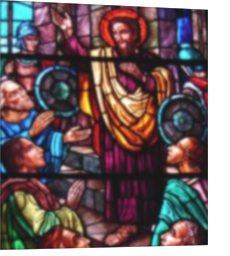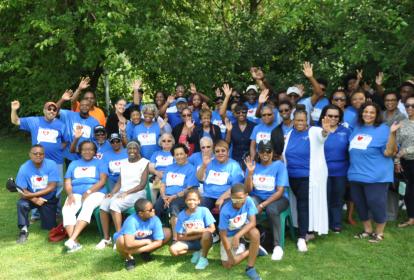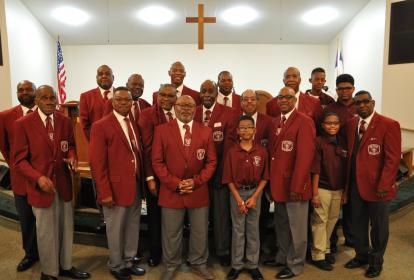 St James AME Church, Elgin, Illinois
St James AME Church, Elgin, Illinois
 The Connectional Lay Organization (CLO) President Makiti Unveils Vision for the Next Four Years
The Connectional Lay Organization (CLO) President Makiti Unveils Vision for the Next Four Years






Lay Organization
Email to a Friend
Subscribe: Email, RSS
Posted on Fri, Oct 15, 2021
The Connectional Lay Organization (CLO) President Makiti Unveils Vision for the Next Four Years
A month after Matikane Abednego Makiti’s historic election as the first-ever African President of the Connectional Lay Organization (CLO), he moved expeditiously to unveil his vision at the CLO’s first Executive Board Meeting, held on Saturday, 21 August 2021.
The vision will guide and direct the CLO for the next four years and is premised on the overall mission and vision of the Lay Organization, which is to teach, train and provide greater leadership opportunities for the lay members of the African Methodist Episcopal Church.
In his opening statement, Makiti emphasized that the CLO should strive to meet the needs and aspirations of the Church’s laypersons, including all auxiliaries, because they are the CLO’s most important stakeholders. He further encouraged the Connectional Lay Organization Executive Board members —- and by extension, their constituent members in the entire connection to have greater passion and enthusiasm for the lay ministry. It is our mission always to embrace, express, live, and emulate the values of Servant Leadership as were espoused by Jesus Christ when transacting in God’s business and ensure that all decisions taken are in the interest of advancing the mission of the Lay Organization—which is to teach, train and prepare our laypersons for greater leadership roles.
The much-anticipated vision for the CLO for the 2021-2025 quadrennial prioritized teaching and training. President Makiti said that the CLO needed to continue to embark on programs that ensure that teaching and training remain the core of the CLO business. In this regard, the CLO embraces unity, collaboration with other auxiliaries to achieve personal and professional development of members in a caring and prayerful manner. He emphasized that all of this would be achieved if the Lay Organization goes back-to-basics and introduces empowerment programs that resonate with our lay members. “We will be introducing Master Classes, lectures on leadership development, embark on Mentorship Academy and Exchange Programs amongst Episcopal Districts,” said Makiti.
President Makiti further affirmed that he envisions the Connectional Lay Organization that is spiritual, biblically-based, and anchored in prayer—a Lay Organization that could be a home where both new and old members of all ages can grow spiritually through programs that fulfill, nurtures, and ministers to the spiritual needs of our constituent members.
As a connectional organization, President Makiti encouraged members to embrace global inclusion and participation, constantly learning from each other, embracing diversity, valuing and respecting the rights and views of all members regardless of where they originate because “all voices matter.” He further implored members to continue to support Episcopal Districts 14 through 20 through “Twinning Agreements” to allow for cross-pollination of teaching, training, and empowerment and to provide support and collaboration on social action initiatives.
Openness in communication is one of President Makiti’s passions. He, therefore, urged the CLO to communicate and listen to members’ needs and requirements of the members whilst at the same time ensuring that members are well-informed and that communication is timely, relevant, and professional. This, he stated, will be done in a cohesive and collaborative manner to safeguard the integrity and brand image of the CLO. The CLO will also leverage technology using traditional and social media outlets to profile, market, and publicize the Lay Organization and its work. Communication platforms and resource tools will be enhanced by embracing and utilizing current advancements in technology while embracing and enhancing the uptake of technology as a means of business communication. Such advancements will help bridge the digital divide amongst lay members and the Episcopal Districts.
From the stakeholder perspective, President Makiti emphasized the need for the CLO to have sound and cordial relationships with the clergy. These congealed relationships will extend to the other auxiliaries in the church to determine their training needs, embark on joint programs, and share training resources.
For agility and future sustenance of the CLO, President Makiti emphasized the need to provide an opportunity to young adults to develop relevant and pointed programs aimed at growing their participation in the Organization.
President Makiti, however, raised concerns around the dwindling membership numbers in all episcopal districts. He advised the CLO to carefully evaluate its efforts in the past years and identify the most effective tools to reach as many members as possible. He further advised the CLO to refine its recruitment and retention strategy and use research to determine why membership is not growing.
Regarding the CLO resources, President Makiti reiterated his commitment to maintaining healthy financial management and long-term fiscal health. Important to mention was the fact that the 2021 Biennial Session ended in the green. He urged the CLO to look at income-generating streams such as corporate funding and sponsorships to ensure that the CLO’s finances are always in a healthy state.
For an effective administration, President Makiti emphasized the need for collaboration to utilize resources more effectively and streamline processes, working through clusters to promote unity, peace, and collaboration, and avoiding unnecessary duplication of functions.
He also mentioned the importance of preserving the CLO history and nurturing the heritage and tradition of the CLO as a luminous, glorious, and inspiring organization.
“All of the above will not come alive if the CLO does not have an implementable and sound strategy that is realistic and can be measured. Our focus and priority in this tenure will be on performance assessment by the 2nd Vice President and the Organizational Effectiveness Committee [who will] report back to the President and the Executive Board”, said Makiti
President Makiti expressed gratitude to God for allowing him to serve again and thanked all who supported and prayed for him during his journey. He also thanked the Executive Board and members who continue to support him as he leads the Connectional Lay Organization to a higher trajectory by quoting from 1 Samuel 7:12 (NRSV), “Then Samuel took a stone and set it up between Mizpah and Jeshanah, and named it Ebenezer; for he said, “Thus far the Lord has helped us.”
No messages have been posted.
You must first create an account to post.